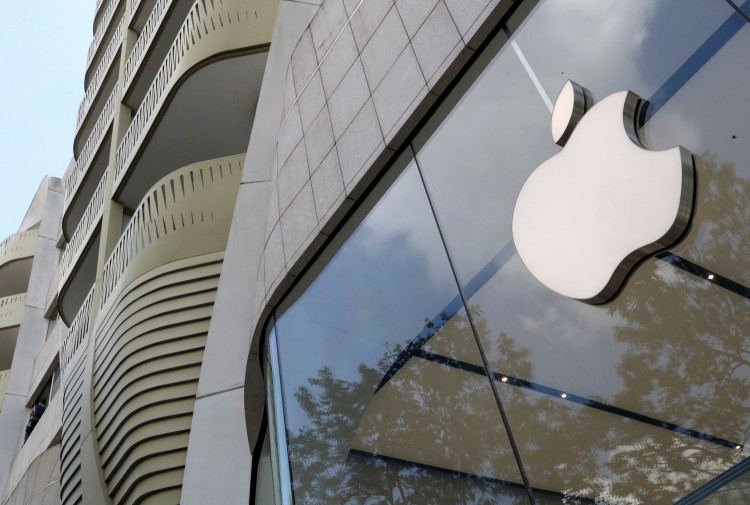Apple, once hesitant to embrace the term "AI," now finds itself in a race to catch up as major tech companies like OpenAI, Google, and Microsoft unveil groundbreaking AI advancements. With its Worldwide Developers Conference (WWDC) on the horizon, the spotlight is on Apple to showcase its AI capabilities and address the intensifying competition.
Since the generative AI boom ignited by OpenAI in late 2022, AI has dominated the tech landscape, propelling Nvidia's market value to $3 trillion and prompting strategic shifts among industry giants like Microsoft, Google, and Amazon. These companies are scrambling to integrate AI into their core services.
OpenAI, the leader in generative AI models, has experienced significant revenue growth since the release of its latest ChatGPT-4o model with voice dialogue capabilities. The company has also indicated that a new generation of models is in development.
Meanwhile, Google and Microsoft, Apple's direct competitors in the electronics space, have already made major strides in AI PCs. Microsoft recently announced the launch of Windows 11 AI PC, boasting faster speeds and advanced features like real-time translation. Google has also added new AI capabilities to its Chromebook Plus line, intensifying the competition with Microsoft and Apple.
As Apple's WWDC approaches, investors and customers eagerly anticipate the company's AI offerings. CEO Tim Cook has hinted at "major plans," fueling speculation about Apple's AI endeavors. With over a billion iPhones in use, Wall Street is keen to hear how AI will enhance the iPhone's competitiveness against Android rivals and how the company will leverage its investments in developing proprietary chips.
Investors are increasingly drawn to companies with clear AI strategies and visions. Nvidia's stock price has tripled in the past year, while Microsoft's aggressive integration of OpenAI has led to a 28% increase. In contrast, Apple's stock has only risen by 9%, and its market capitalization has been surpassed by both companies.
Analysts emphasize the significance of this event for Cook and Apple, stating that "AI strategy is the missing piece of the Apple growth puzzle. This event needs to be remarkable, not indifferent."
Apple's software chief, Craig Federighi, is expected to discuss practical applications of Apple's AI. Some analysts anticipate the company will unveil its long-term vision for implementing generative AI across its diverse ecosystem of personal devices. "The impact of generative AI on Apple's business is the most profound in the entire tech sector. Apple has a clear opportunity to bring generative AI capabilities to billions of consumer devices," one analyst remarked.
While Apple has remained tight-lipped about any collaboration with OpenAI, there is speculation about potential partnerships to enhance Siri or incorporate chatbot technology from other companies like Google and Cohere. However, Apple might opt for a more cautious approach, avoiding direct competition with full-fledged chatbots and instead focusing on improving existing features and redirecting complex queries to partners.
Concerns about chatbot malfunctions, privacy breaches, and the accuracy of large language models like OpenAI's have raised questions about Apple's full embrace of such technologies. The company's emphasis on user privacy and data control could be at odds with OpenAI's web-scraping techniques and the use of user interactions to improve its models.
Industry insiders suggest that even if Apple collaborates with OpenAI, it would likely be a temporary measure. Apple has a history of incorporating external technologies and developing its capabilities, such as replacing Intel's chips with its own.
Apple's AI strategy extends beyond chatbots, with plans to utilize large language models to power robotic devices in development. These include a desktop robotic arm with an iPad-like display and a mobile robot capable of assisting users with household tasks. The company also aims to equip AirPods with cameras and AI functionalities.
However, the potential collaboration between Apple and OpenAI has raised concerns among Microsoft executives. Microsoft seeks to leverage OpenAI's technology to penetrate consumer markets, and a deal with Apple could jeopardize those opportunities.
On the positive side, Microsoft could benefit financially from such a collaboration, generating more cloud computing revenue.
In terms of AI model development, Apple might differentiate itself from competitors by focusing on efficiency. Cook has highlighted the advantages of Apple's proprietary chips in running AI models, emphasizing the company's unique integration of hardware, software, and services, along with its commitment to privacy.
Analysts predict that Apple's WWDC keynote will showcase the capabilities of its AI models running on devices. In April, Apple published research on "efficient language models" designed to operate on smartphones, a concept that Microsoft is also exploring.
Apple's "OpenELM" model, with 1.1 billion parameters, is significantly smaller than OpenAI's 2020 GPT-3 model with 175 billion parameters and even smaller than some versions of Meta's Llama.
Apple's research demonstrates that these efficient models can run on devices like the MacBook Pro without cloud connectivity, enhancing responsiveness and privacy by keeping sensitive queries on the device itself.
Potential AI-powered features in Apple's software could include summarizing missed text messages, generating new emoji images, completing code in Xcode, or composing email replies. Apple might also consider equipping its data centers with M2 Ultra chips to handle AI queries that demand more computing power.





